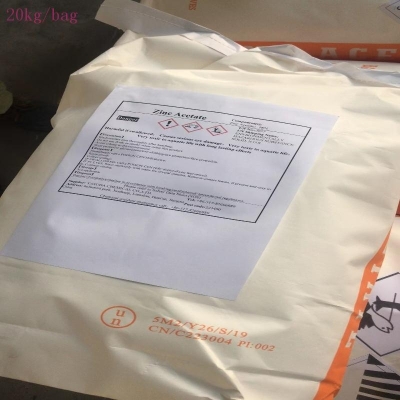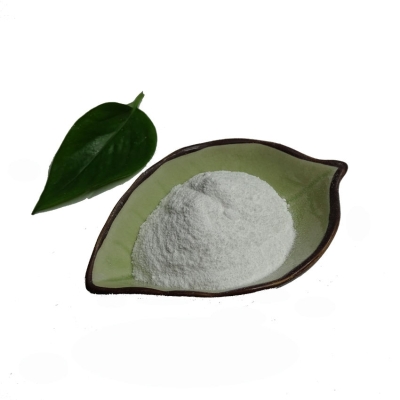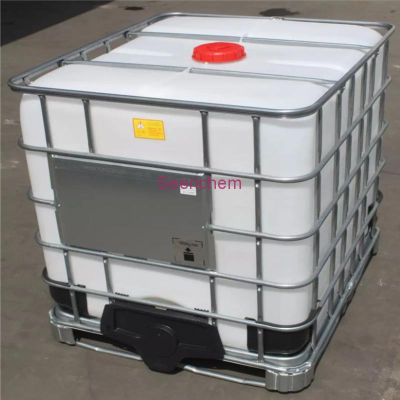-
Categories
-
Pharmaceutical Intermediates
-
Active Pharmaceutical Ingredients
-
Food Additives
- Industrial Coatings
- Agrochemicals
- Dyes and Pigments
- Surfactant
- Flavors and Fragrances
- Chemical Reagents
- Catalyst and Auxiliary
- Natural Products
- Inorganic Chemistry
-
Organic Chemistry
-
Biochemical Engineering
- Analytical Chemistry
-
Cosmetic Ingredient
- Water Treatment Chemical
-
Pharmaceutical Intermediates
Promotion
ECHEMI Mall
Wholesale
Weekly Price
Exhibition
News
-
Trade Service
Entrusted by the Special Action Office of Shandong Chemical Industry, the Shandong Chemical Fertilizer and Coal Chemical Industry Association recently organized and compiled the "Shandong Province Chemical Fertilizer and Coal Chemical Industry Transformation and Upgrade High-quality Development Implementation Plan.
" According to the provincial government's high-quality development goals for the transformation and upgrading of the chemical fertilizer and coal chemical industries in the province, the tasks and implementation paths have been refined.
The goal of transformation and upgrading of the nitrogen fertilizer industry is to compress synthetic ammonia production capacity of 2 million tons by 2022, control the province's synthetic ammonia production capacity at about 6.
5 million tons, and urea production capacity at about 8 million tons.
Clean coal gasification accounts for the current total synthetic ammonia production capacity.
The 37% of the nitrogen fertilizer industry has increased to about 90%, the elimination rate of fixed-bed gasifiers has reached more than 90%, and the fixed-bed gasifiers of urea and methanol production enterprises have been eliminated.
The nitrogen fertilizer industry has basically achieved the third-generation clean coal gasification, and the gasification of ammonia and ammonia The fine chemical technology has reached the international advanced level.
The industry will reduce the consumption of standard coal by about 2 million tons, and the total energy consumption will be reduced by 20%; the waste gas emissions will be reduced by about 2680 tons, and the total emissions will be reduced by 50%.
The plan emphasizes that it is necessary to adopt advanced coal gasification technology to transform the existing fixed-bed gasification equipment, build a batch of clean gasification furnaces, and encourage enterprises to extend the industrial chain through the comprehensive utilization of coal-to-synthetic gas.
Optimize the layout of nitrogen fertilizer enterprises, promote enterprises with small ammonia synthesis capacity and unable to implement coal gasification transformation through mergers and acquisitions, and orderly withdraw from the nitrogen fertilizer industry, realize the concentration of production capacity to superior backbone enterprises, and cultivate a group of enterprises with an annual production capacity of more than one million tons of urea .
? Phosphate compound fertilizer and new fertilizer industry should guide existing phosphate fertilizer and compound fertilizer enterprises to adjust product structure and increase the development and promotion of new functional fertilizers based on market demand without increasing production capacity.
The direction of product adjustment, including the deep utilization of phosphorus resources and the extension of product market services, must continue to develop new types of fertilizers such as various functional compound fertilizers, nitro-based fertilizers, slow and controlled release fertilizers, and water-soluble fertilizers.
It is necessary to increase the comprehensive utilization of phosphogypsum, actively promote the use of phosphogypsum to make various new building materials (gypsum powder, gypsum board, gypsum block, cement retarder, etc.
), and develop new technologies to produce high value-added phosphogypsum products.
? For the coal chemical industry, the plan proposes to maintain the leading position of chemical fertilizers in Shandong Province in the national economy and technology, explore new ways for the development of coal-based chemical polygeneration using synthesis gas as a platform, and build a coal-based chemical research and development base.
The goal of high-quality development of coal-based chemicals is to achieve two changes: one is to transform from basic chemical raw materials to high-end chemical products; the other is to transform from primary products to high value-added refined products.
Develop a serialized, diversified, and differentiated coal chemical industry chain, and build a coal-based chemical industry with significant advantages, exclusive technology, and a market that is not easy to replicate.
" According to the provincial government's high-quality development goals for the transformation and upgrading of the chemical fertilizer and coal chemical industries in the province, the tasks and implementation paths have been refined.
The goal of transformation and upgrading of the nitrogen fertilizer industry is to compress synthetic ammonia production capacity of 2 million tons by 2022, control the province's synthetic ammonia production capacity at about 6.
5 million tons, and urea production capacity at about 8 million tons.
Clean coal gasification accounts for the current total synthetic ammonia production capacity.
The 37% of the nitrogen fertilizer industry has increased to about 90%, the elimination rate of fixed-bed gasifiers has reached more than 90%, and the fixed-bed gasifiers of urea and methanol production enterprises have been eliminated.
The nitrogen fertilizer industry has basically achieved the third-generation clean coal gasification, and the gasification of ammonia and ammonia The fine chemical technology has reached the international advanced level.
The industry will reduce the consumption of standard coal by about 2 million tons, and the total energy consumption will be reduced by 20%; the waste gas emissions will be reduced by about 2680 tons, and the total emissions will be reduced by 50%.
The plan emphasizes that it is necessary to adopt advanced coal gasification technology to transform the existing fixed-bed gasification equipment, build a batch of clean gasification furnaces, and encourage enterprises to extend the industrial chain through the comprehensive utilization of coal-to-synthetic gas.
Optimize the layout of nitrogen fertilizer enterprises, promote enterprises with small ammonia synthesis capacity and unable to implement coal gasification transformation through mergers and acquisitions, and orderly withdraw from the nitrogen fertilizer industry, realize the concentration of production capacity to superior backbone enterprises, and cultivate a group of enterprises with an annual production capacity of more than one million tons of urea .
? Phosphate compound fertilizer and new fertilizer industry should guide existing phosphate fertilizer and compound fertilizer enterprises to adjust product structure and increase the development and promotion of new functional fertilizers based on market demand without increasing production capacity.
The direction of product adjustment, including the deep utilization of phosphorus resources and the extension of product market services, must continue to develop new types of fertilizers such as various functional compound fertilizers, nitro-based fertilizers, slow and controlled release fertilizers, and water-soluble fertilizers.
It is necessary to increase the comprehensive utilization of phosphogypsum, actively promote the use of phosphogypsum to make various new building materials (gypsum powder, gypsum board, gypsum block, cement retarder, etc.
), and develop new technologies to produce high value-added phosphogypsum products.
? For the coal chemical industry, the plan proposes to maintain the leading position of chemical fertilizers in Shandong Province in the national economy and technology, explore new ways for the development of coal-based chemical polygeneration using synthesis gas as a platform, and build a coal-based chemical research and development base.
The goal of high-quality development of coal-based chemicals is to achieve two changes: one is to transform from basic chemical raw materials to high-end chemical products; the other is to transform from primary products to high value-added refined products.
Develop a serialized, diversified, and differentiated coal chemical industry chain, and build a coal-based chemical industry with significant advantages, exclusive technology, and a market that is not easy to replicate.







